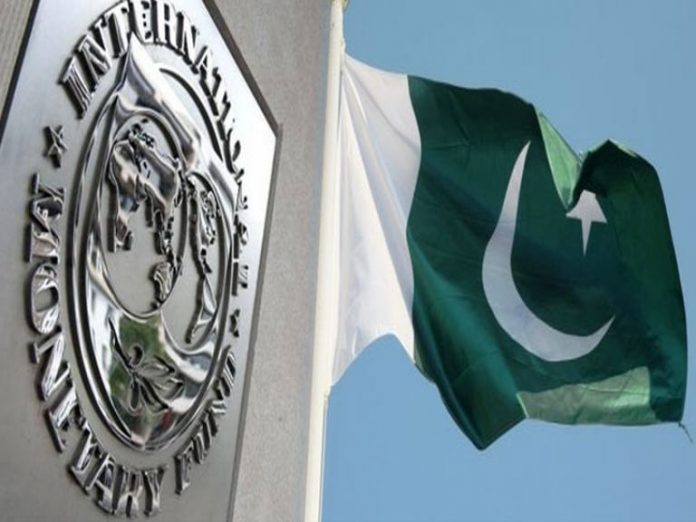KARACHI: In a circular addressed to presidents and chief executives of authorised dealers in the country, the State Bank of Pakistan (SBP) withdrew restrictions on imports effective January 2, 2022.
“Attention of the Authorised Dealers (ADs) is invited to EPD Circular letter No. 9 of May 20, 2022 and Circular letter No. 11 of July 5, 2022, wherein ADs were required to seek prior permission from Foreign Exchange Operations Department SBP-BSC before initiating any import transaction pertaining to HS Code Chapter 84, 85 and certain items of Chapter 87,” read the circular.
Previously, the cash-strapped SBP required ADs to seek prior permission from the Foreign Exchange Operations Department (FEOD), and SBP –BSC before initiating import transactions which included issuance or amendment of letters of credit (LCs), registration or amendments of contracts, making advance payments, and authorising transactions on open account or collection basis. The approval was granted on a case-to-case basis.
However, with effect from January 2, 2023; the SBP has withdrawn the instruction.
“Consequently, requests for import transactions already submitted to SBP-BSC pertaining to above referred HS Codes stand returned to the ADs for appropriate disposal at their end,” added the circular.
Despite the removal of the restriction, it isn’t smooth sailing for all importers. ADs are asked to prioritise or facilitate imports under essential imports, energy imports, imports by export-oriented industry, imports for agriculture imports, deferred payment/self-funded imports, and imports for export-oriented projects near completion.
The ADs need to keep the customers’ risk profile along with the liquidity position in the FX market before processing.
Why is the SBP doing this?
With the upcoming International Monetary Fund (IMF) review, the government and the SBP need to work towards a market-determined exchange rate. Through restricting outflows, the rupee depreciation was contained.
Similarly, Senior sources within the ministry of finance shared documents with Profit that state that the ministry increased the Petroleum Development Levy (PDL) by Rs 5/litre on High-Speed Diesel (HSD), Rs 6.09 Kerosene (SKO) and Rs 0.90 Light Diesel Oil on the 16th of December in an attempt to meet the IMF condition of collecting Rs 850 billion through this levy during this fiscal year.
With reserves dropping to $6.1 billion, their lowest since April 2014 the country has an import cover at a meagre 1.16 months signifying liquidity and foreign exchange management challenges.
What sectors are given preference?
Food in the form of wheat, edible oil, etc, inputs, medicines, surgical equipment, and key components of the pharmaceutical sector will be given priority. The import of oil and gas will also be prioritised. Coal for power projects can be imported based on their merit order decided by the Ministry of finance.
In addition to these essentials, export-oriented businesses can import raw materials, inputs, and spare parts; while the agriculture sector can import inputs like seeds, fertilisers, and pesticides.
What does this mean for the auto sector?
The immediate impact of the SBP’s decision to rescind its mandate over the import of completely knocked-down (CKD) kits in Chapter 87 will be an easing of the supply side tensions that automotive companies will have been dealing with.
“Now the industry is to deal with authorised dealers which will be rather convenient compared to dealing with SBP,” says Abdul Waheed Khan, Director General of the Pakistan Automotive Manufacturers Association. Access to LCs will enable companies to once again more quickly import their requisite components, and thereby reduce their current production lead times to meet customer demand more effectively.
This will provide the sector with the life support that it needs at a time when the five month FY 2022-23 sales volume is 31.52% lower year-on-year in comparison to the FY 2021-22 over the same period. Much of this decrease has been due to the supply side problems that have led to many companies halting their bookings for vehicles, pushing lead times upwards, and in the case of Toyota Indus Motors, providing refunds to customers.
“This has not only saved the industry but also the employment of thousands of employees,” says Shafiq Shaikh, Head of Public Relations and Official Spokesperson at Pak Suzuki Motor Company Limited. The SBPs announcement also comes at a pivotal moment with Toyota having announced non-production days for the remainder of the year two weeks ago, and Suzuki having announced its non-production days for 2023 earlier this week. Both had cited the SBPs mandate over LCs for the import of CKD kits as the main reason.
However, whether there is enough latent demand for these automotive companies to benefit from their new productive capacities remains to be seen. The hierarchy of rationing forex that the SBP has created and handed over to the ADs may, however, limit the efficacy of this measure for the sector.
“We import raw materials to make spare parts for the auto industry. However, the auto industry is not an essential item and therefore our imports will continue to be controlled and rationed by SBP,” Munir Bana, Chairman of the Pakistan Association of Auto Parts & Accessories Manufacturers. The SBPs circular still leaves room for opacity, and subsequently leaves many onlookers from the automotive sector in the dark.
Even if the CKD kits can be imported, if parts manufacturers are unable to subsequently import the requisite components then the downward effect on lead times across the industry will remain limited.





What an eye wash!!! Now ADs are required to manage these imports from their own sources, how will this change banks attitude towards imports? Only thing SBP has done is to transfer its role to the banks. The bankers are now set to face the music of its customers who they had refused earlier on the pretext that approvals from SBP were delayed. Now they will have to prioritize imports based on income from each customer. Therefor SMEs will continue to crowd out as banks will continue to prioritize the large corporates